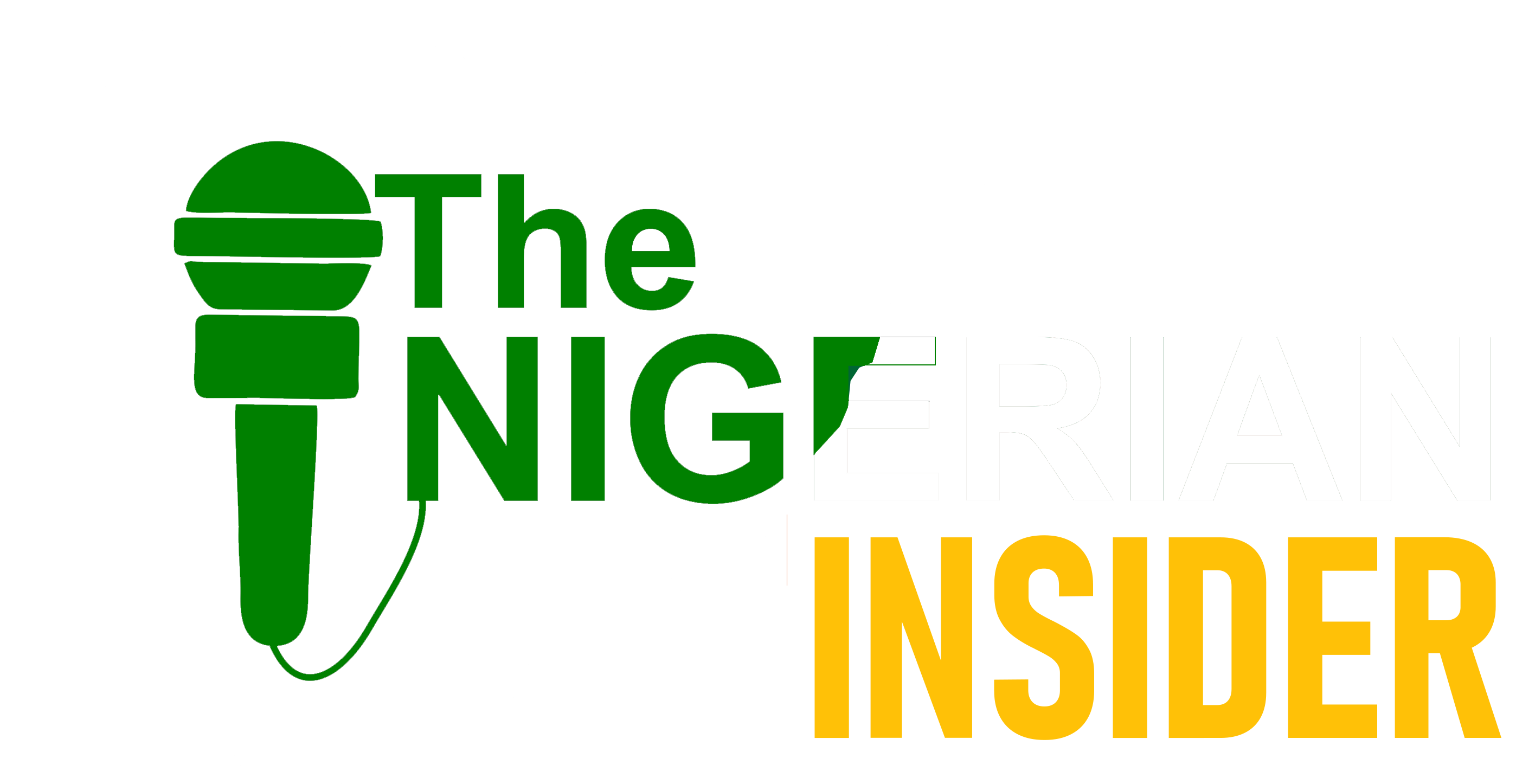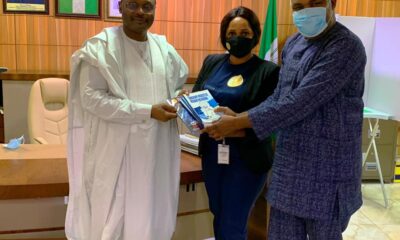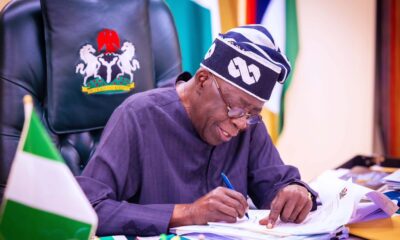NATIONAL
Nigeria, China deepen agreement to boost security, finance and economic growth.

ABUJA (R): Nigeria will deepen cooperation with China on clean energy, defence and finance, according to reports made by the two countries’ foreign ministers on Thursday that pledged support for their countries’ issuance of Panda bonds for infrastructure funding.
In addition to addressing issues of regional security, the ministers also stressed efforts between both nations.
Wang Yi’s visit to Nigeria was part of a larger four-nation tour within Africa, an annual pilgrimage he makes to advance even further the already high foreign direct investment his country enjoys on the continent.
His trip to Nigeria comes quite hot on many levels, including last June’s intergovernmental committee talks in Beijing and Nigerian President Bola Tinubu’s state visit in September.
These meetings culminate in elevating the bilateral relationship into a “comprehensive strategic partnership”, Wang announced during the press conference.
Wang said China will “favourably study and consider” a request by Nigeria to expand a currency swap agreement.
On regional peace and security, Wang said that China would always vote for Africa at the United Nations Security Council and continue to support Nigeria to rally other countries in the region.
“We will work together with Africa to have insecurity solved in a sustainable way by development.”
NATIONAL
Seven Nigerians and One Nepali Detained in India
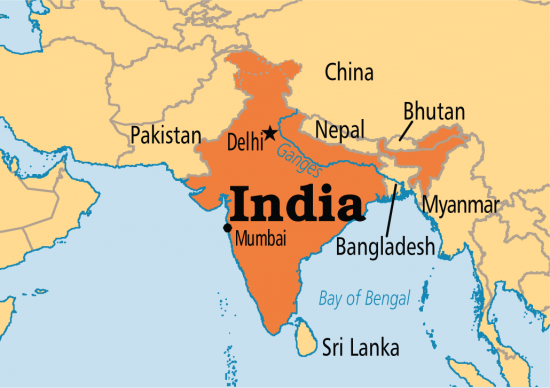
Indian law enforcement has apprehended eight individuals—including seven Nigerian nationals—on charges of possessing illegal narcotics valued at over ₹1 crore. The operation, which began in Noida, led to a wave of significant arrests throughout Delhi over a span of three days.
According to a report by The Times of India on Saturday, the crackdown was initiated following the arrest of Bimal Pahadi, a Nepali national, on June 16 in Sector 39. Authorities seized 1.6 kg of sulpha and 116 grams of cocaine from him, leading to the filing of a case under the Narcotic Drugs and Psychotropic Substances Act.
During questioning, Pahadi revealed information about a broader drug trafficking network, prompting subsequent raids in Delhi on June 18 and 19. Based on the intelligence gathered from him, a police team conducted coordinated operations that resulted in the capture of seven additional individuals linked to the supply chain.
The detained Nigerian suspects have been identified as Ugochukmv John (alias David), Nnajiofor Peter Nmaemeka, Henry Onuchukwu, Ojukwa Ifenya, Friday Tobias Chikwu, and Okolie Romanus. Additionally, an Indian national named Lal Kothari, from Aizawl in Mizoram, was also taken into custody.
All seven Nigerian suspects were presented before a court on June 20, while Pahadi remains under custody for ongoing investigations. Authorities believe this group is part of an international drug trafficking syndicate that has been utilizing Delhi and Noida as key distribution points.
“This operation delivers a significant blow to a well-organized, cross-border drug network. The investigation suggests extensive international connections,” remarked a senior police official, who requested anonymity. Ongoing inquiries are expected to lead to more arrests in the near future, as the agency continues its efforts.
NATIONAL
HURIWA to Challenge Compulsory Voting Bill in Court, Calls for United Civil Society Resistance

The Human Rights Writers Association of Nigeria (HURIWA) has declared its intent to legally challenge the controversial bill seeking to make voting compulsory for all eligible Nigerians, warning that it poses a grave threat to constitutional liberties and undermines democratic principles.
The bill, which has passed second reading in the House of Representatives, was sponsored by the Speaker of the House, Rt. Hon. Abbas Tajudeen, and seeks to amend the Electoral Act 2022 to criminalize voter abstention. It proposes a fine of up to ₦100,000 or imprisonment for eligible citizens who fail to vote in national and state elections.
HURIWA, in a strongly worded statement issued in Abuja on Friday, condemned the bill as a dangerous and unconstitutional overreach that seeks to enforce democratic participation through coercion, rather than building trust in the electoral process.
“This is not just an ill-advised piece of legislation — it is a blatant assault on the fundamental rights enshrined in the Nigerian Constitution. Voting is a right, not a state-imposed obligation. Any attempt to transform that right into a mandatory duty, punishable by law, is dictatorial and anti-democratic,” the statement signed by HURIWA’s National Coordinator, Comrade Emmanuel Onwubiko, read.
He disclosed that HURIWA is already in advanced consultations with a consortium of human rights lawyers and constitutional experts, with the intention of filing a suit to stop the bill, even before it becomes law, citing its inherent unconstitutionality and dangerous implications for democratic freedoms.
HURIWA asserted that while increasing voter turnout is a legitimate policy goal, it must not come at the expense of civil liberties. “Compelling people to vote through threats of punishment does not build democracy — it destroys it,” the group said.
Citing Sections 39 and 40 of the 1999 Constitution (as amended), which guarantee freedom of expression and association respectively, HURIWA emphasized that these rights include the freedom not to engage — a crucial but often overlooked element of participatory democracy.
“Refusing to vote is in itself a political statement, and any law that criminalizes such a decision is attempting to silence dissent,” Onwubiko said.
Referencing opinions from the country’s legal community, inuding NBA President, Mazi Afam Osigwe (SAN), and Femi Falana (SAN), HURIWA stated that the real challenge is not that Nigeria are unwilling to vote, but that they no longer believe their votes count.
“Rather than threatening the people, the National Assembly should focus on rebuilding the integrity of our electoral institutions,” HURIWA stated
HURIWA called on other civil rights organizations, pro-democracy advocates, and public interest litigators to unite in opposition to the bill and join its legal action against it.
“This is the moment for every patriotic citizen to speak out. Today, it’s compulsory voting. Tomorrow, it could be state-mandated political allegiance or punishment for non-membership of parties. The slope is slippery and the consequences are dire,” Onwubiko warned.
He noted that in democratic countries where compulsory voting is implemented — such as Belgium or Australia — it operates within robust democratic frameworks that have strong civic education systems, high trust in institutions, and transparent governance structures.
“But Nigeria is not Belgium,” HURIWA argued. “We are grappling with electoral malpractice, judicial compromise, rising autocracy, and insecurity. To superimpose a coercive law like this in our environment is both misguided and malevolent.”
HURIWA urged the National Assembly to redirect its legislative efforts toward real electoral reforms that address the root causes of voter apathy, including ending impunity for rigging, prosecuting electoral offenders, strengthening INEC’s independence, and eliminating political thuggery and vote-trading.
“Democracy cannot thrive where fear replaces choice. Free, fair, and credible elections are the heart of democracy — and that starts with the right to choose whether or not to participate,” Onwubiko emphasized.
As the bill proceeds through the legislative process, HURIWA has pledged to maintain sustained advocacy and civil mobilization, including public awareness campaigns and international engagement, to ensure the Nigerian public and the world fully understand the threat it poses.
“This bill must not become law. It is not just an affront to legal rights — it is a direct assault on the spirit of democracy,” HURIWA concluded.
The association urged all Nigerians, especially members of the legal and civil society communities, to remain vigilant and to resist attempts to legislate dictatorship in the guise of democratic reform.
Comrade Emmanuel Onwubiko
National Coordinator,
Human Rights Writers Association of Nigeria (HURIWA)
May 23rd, 2025.
NATIONAL
Stamp Duty Exemption on Rents Below N10m – Taiwo Oyedele
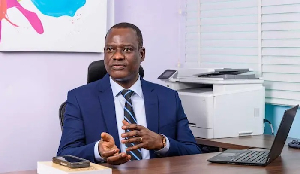
Taiwo Oyedele, the Chairman of the Presidential Committee on Fiscal Policy and Tax Reforms, has revealed that property rents under N10 million will be exempt from stamp duty, as outlined in new tax reform bills currently before the National Assembly. Oyedele made this announcement in Abuja during the Building and Construction Industry Forum, which focused on the implications and opportunities of Nigeria’s tax reforms for this sector. The event was organized by the Council of Registered Builders of Nigeria, in collaboration with the Housing Development Advocacy Network.
“What we have done in the reform bills is to make everything clear to eliminate any ambiguity,” Oyedele stated. He emphasized that the exemption applies to rents less than N10 million, indicating that renters—who make up a significant portion of the population—will not face stamp duties unless they are among the wealthier individuals paying higher rents. He mentioned, “It’s not about penalizing the wealthy; they simply have a greater capacity to pay.”
Moreover, he announced that capital gains tax on the sale of primary residences will also be waived and that the withholding tax rate for construction projects will now be capped at two percent, a notable decrease.
Festus Adebayo, Executive Director of the Housing Development Advocacy Network, urged the tax committee to consider introducing incentives or tax rebates to attract developers to invest in affordable housing. He noted that many developers currently struggle with high rents and fees. Adebayo stated, “As the tax reform is still in the National Assembly, the committee should explore ways to incentivize or provide tax rebates for developers focused on low-cost housing, as many face considerable challenges in rent and fees.”
Sa’adiya Aliyu-Aminu, Managing Director of Urban Shelter, further supported this notion, highlighting taxation as a vital instrument for economic transparency and national growth. She commented, “Effective taxation can reduce dependence on oil revenues, increase accountability, and make the sector more appealing to both domestic and foreign investors.”
Samson Opaluwah, Chairman of the Council of Registered Builders of Nigeria, emphasized that the forum was critical for discussing how the proposed tax reforms could foster growth and development within the construction industry.
-

 News10 months ago
News10 months agoNUJ FCT Council Mourns The Loss of Senior Journalist, Isaiah Abraham
-
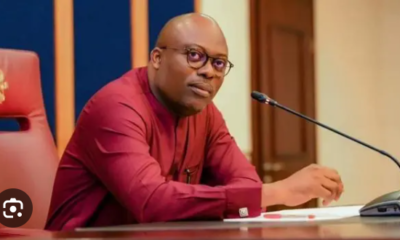
 News10 months ago
News10 months agoHURIWA Declares Governor Fubara’s Emergence as Divine, Urges Support for Rivers State’s Progress
-
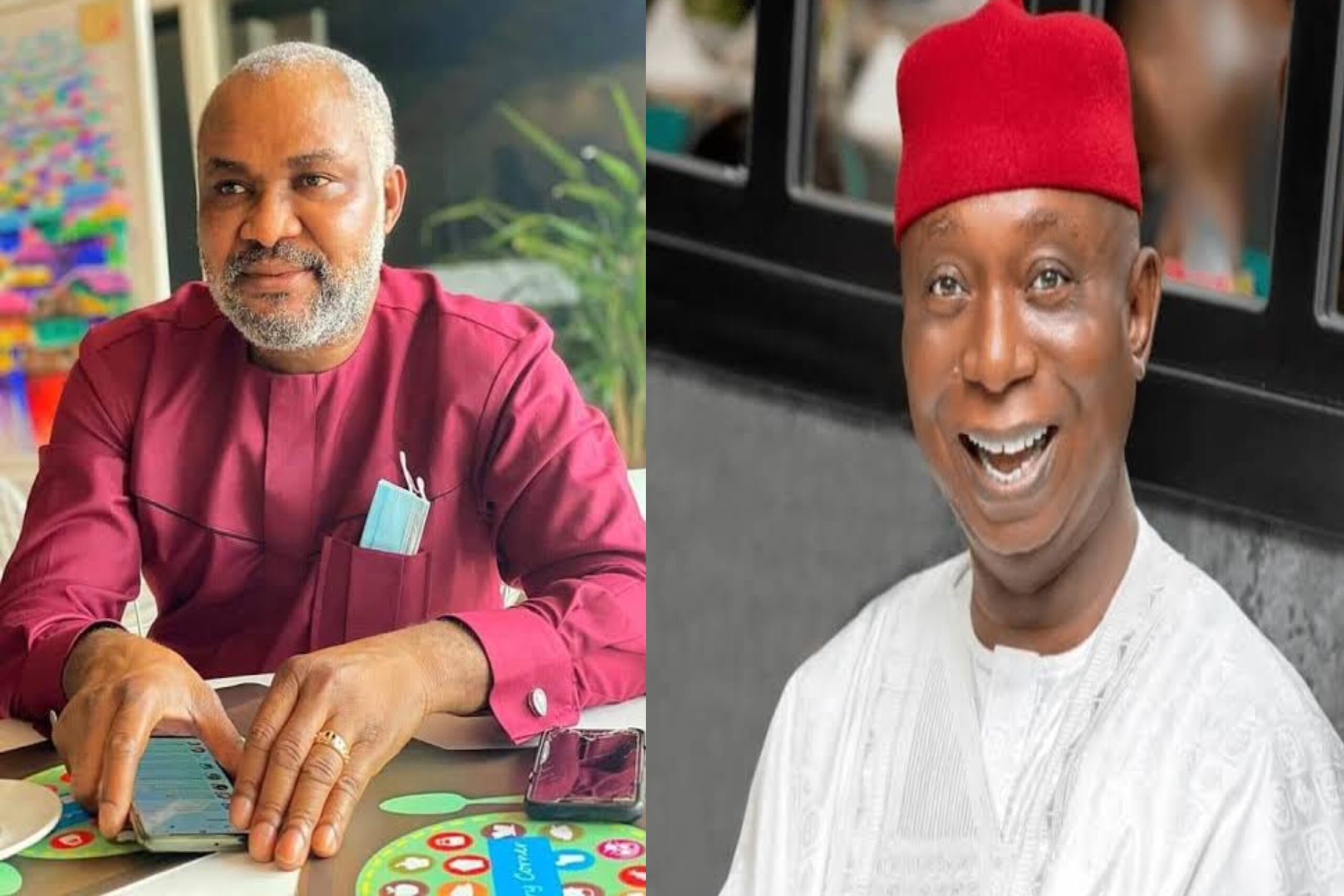
 News10 months ago
News10 months agoAnioma State as panacea to South-East marginalization – By Emmanuel Onwubiko
-

 Opinion8 months ago
Opinion8 months agoNIGERIAN WOMAN IN DIASPORA, CULTURAL SHOCKS – By Stacey Ukaobasi Onwuegbuchulam
-
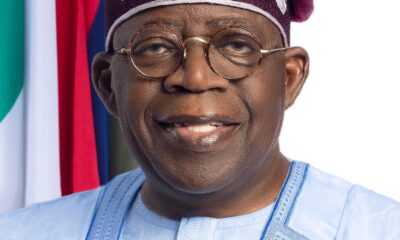
 News11 months ago
News11 months agoHURIWA Blames Serial Stampedes on Weaponized Poverty, Warns of Nigeria’s Rapid Decline
-
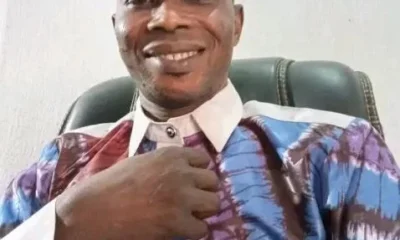
 News10 months ago
News10 months agoJealous Husband Stabs Nigerian Bishop To Death Over Suspicion Of Sleeping With Estranged Wife
-
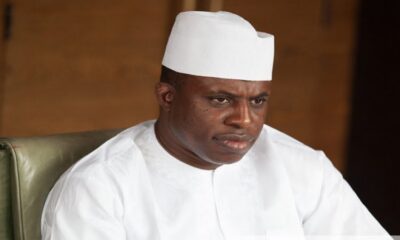
 News10 months ago
News10 months agoTinubu sympathizes with ex-speaker Bankole on the death of his mother
-
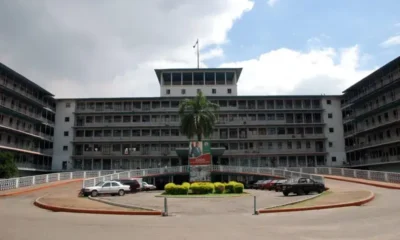
 Health8 months ago
Health8 months agoA complete list of 154 healthcare facilities across Nigeria that provide free emergency obstetric care and VVF (Vesico-Vaginal Fistula) surgeries.
